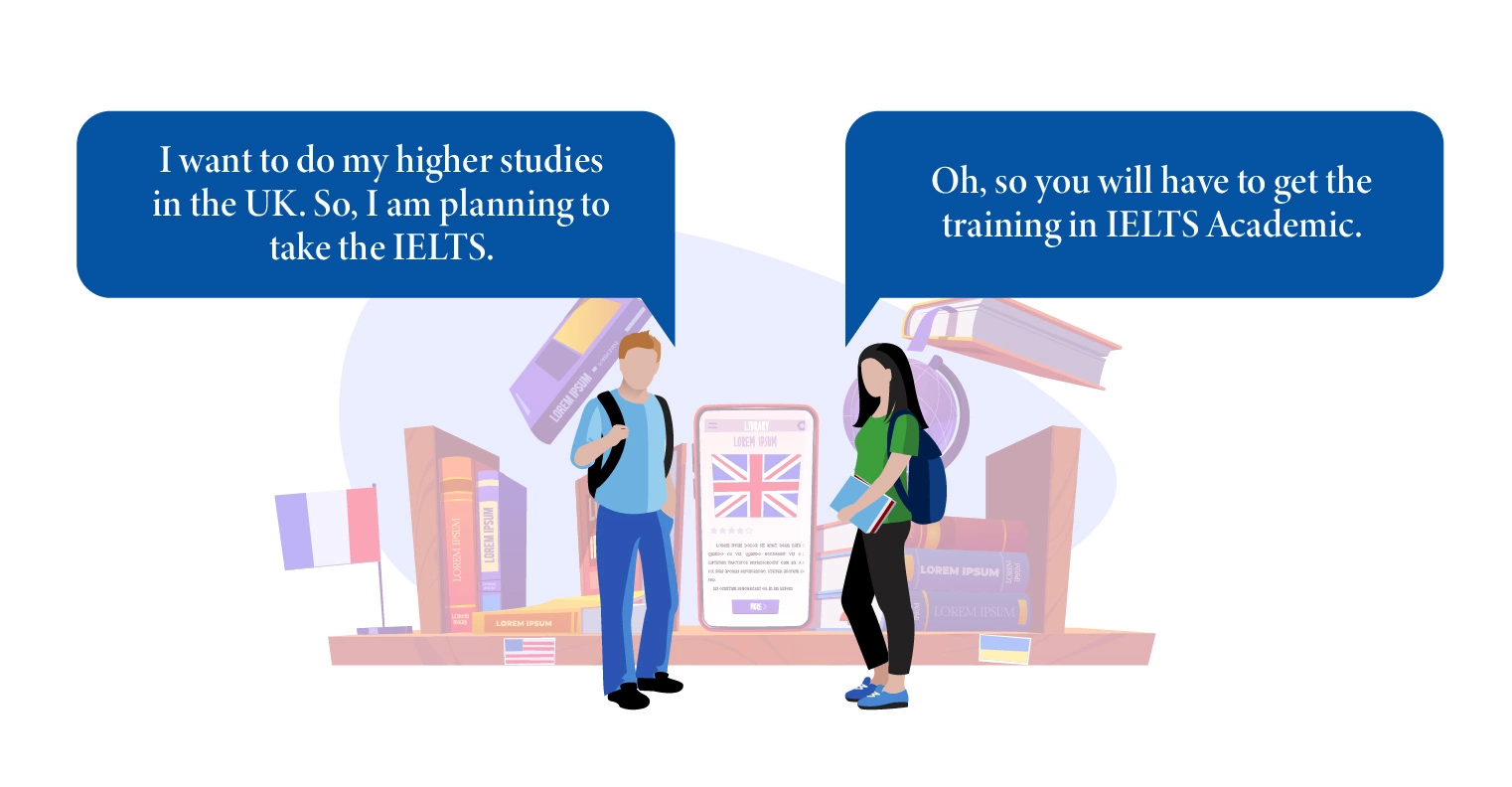 Shalu Johnson
Jan 25, 2024
Shalu Johnson
Jan 25, 2024

Do you have plans to migrate, work or study in a country where English is the native language? Then, you need to have IELTS. Now, if you have already started preparing for the IELTS exam and are still unsure about the basic facts of IELTS, this blog is for you. Maybe you are confused about the IELTS preparation and the things involved in the preparation. This blog is an introduction to IELTS and covers fundamental ideas of IELTS such as;
IELTS or The International English Language Test is designed to help you study, work or migrate to a country where English is considered the primary language. IELTS is accepted in more than 140 countries, including the UK, Australia, New Zealand, the USA, Canada.
The IELTS test will evaluate your abilities such as Listening, Reading, Writing, and Speaking in English.IELTS is graded on a scale of 1-9.
Now IELTS is jointly owned by the British Council and IDP: IELTS Australia and Cambridge Assessment English.
It’s an English Language Exam that is needed to be taken by the candidates who consider to work or study in a country where English is the main language of communication. The exam mainly calculates the candidates’ ability in the four basic English language skills -Listening, Reading, Speaking, and Writing.
This exam gives a platform for a better understanding and strong command of the English language. One can take the IELTS exam with the British Council or IDP.
If you plan to work, live, or study in an English-speaking country, you need to exhibit a high English language proficiency. English is the third most verbal language globally with 379 million speakers worldwide.
The ability to communicate in the native language of the country you wish to work or study to use the community.
IELTS is the most popular test for those planning to migrate to Australia, Canada, New Zealand, and the UK. The IELTS test is globally recognized by more than 10,000 employers, universities, schools, and immigration bodies, including 3,400 institutions in the USA. Enrol now on NIOS Course in Dubai to continue your education
There are usually two types of IELTS: Academic and General. All test takers take the same Listening and Speaking tests but different Reading and Writing tests. You need to make sure that you prepare for the correct test type.
The different sections of the IELTS test, such as listening, Reading, and Writing can be completed on the same day. While the Speaking section can be completed within a week before or after other tests. The total time taken will be 2 hours and 45 minutes.
This test measures whether your English language proficiency level is suitable for an Academic environment. It reflects aspects of academic language and analyzes whether you are ready to begin training or studying.
This test measures English language proficiency in a practical and everyday context. The task and test reflect both workplace and social situations.
An IELTS Academic test is suitable for anyone entering a university or professional institution. Academic institutions prefer these tests.
An IELTS General test is used for the assessment of skilled workers. Immigration agencies often require the General Training test for certain applicants.
| Academic | General |
| These tests are mainly for academic purposes |
These tests are more appropriate for the workplace
|
| Academic institutions generally accept educational tests |
General tests are used for the assessment of skilled workers
|
| 80% of the test takers chose the Academic test |
20% opt for the general test
|
There are two types of IELTS: Academic and General. All test takers take the same Listening and Speaking tests but different Reading and Writing tests. The Listening, Reading, and Writing sections of all IELTS tests are completed on the same day and no breaks in between them.
The Speaking section can be completed up to a week before or after the other tests. The total test time is 2 hours and 45 minutes.
| Type of Test | Test Duration |
Number of Questions
|
| Listening | 30 minutes | 40 |
| Reading | 60 minutes | 40 |
| Writing | 60 minutes | 2 |
| Speaking | 11-14 minutes | 7-11 |
Read also: IELTS Writing: Problems with the IELTS Writing section & Solutions?
ELTS results are reported on a 9 band scale. They are designed to be simple and easy to understand. They are represented as band scores on a scale from 1 ( the lowest ) to 9(the highest).
The scores are divided for each test component: Listening, Reading, Writing, Speaking. These individual scores are averaged and rounded to produce the final result. The scores can be whole numbers (5,6,7,8) or half bands (5.5,6.5,7.5,8.5). Let’s see how the scores are calculated.
| Writing | Speaking | Reading | Listening | Average/4 | Overall Band |
| 6 | 5.5 | 7 | 6.5 | 6.25 | 6.5 |
| Writing | Speaking | Reading | Listening | Average /4 | Overall Band |
| 7.5 | 7 | 8.5 | 8 | 7.75 | 8 |
| Correct Answers | Band Scores |
| 40-39 | 9 |
| 38-37 | 8.5 |
| 36-35 | 8 |
| 34-33 | 7.5 |
| 32-30 | 7 |
| 29-27 | 6.5 |
| 26-23 | 6 |
| 22-19 | 5.5 |
| 18-15 | 5 |
| 14-13 | 4.5 |
| 12-10 | 4 |
| 9-8 | 3.5 |
| 7-6 | 3 |
| 5-4 | 2.5 |
The Academic IELTS and General IELTS tests are graded on the same 9 scale score band.
| IELTS Score | Skill | Skill Overview |
| 9 | Expert User |
Has complete command of the language.
Accurate, appropriate, highly flexible. Has a complete understanding of the language. |
| 8 | Very Good User |
Has complete command of the language with rare errors or inappropriate words.
Deals with complex situations well but have occasional mistakes under challenging conditions. |
| 7 | Good User |
Has good command of language and has occasional inaccuracies and inappropriate words.
Can use complex language quite well in most situations. |
| 6 | Competent User |
Has effective command of language and has some inappropriate errors and misunderstandings in some situations.
Can use complex language, which is best in familiar situations. |
| 5 | Modest user |
Has partial command of language and can deal with overall meaning.
Makes frequent errors |
| 4 | Limited user |
Basic competence is limited to familiar situations.
Unable to use complex language and most often have difficulty understanding and expressing. |
| 3 | Extremely limited user |
Able to convey and understand meaning generally in familiar situations.
Communication often breaks down. |
| 2 | Intermittent user |
Has great difficulty in verbal and written forms of English.
Has some level of knowledge about a few isolated words. |
| 1 | Non-user |
Has no ability to use the English language.
May know some words. |
| 0 | Not attempted the test. |
Not answered the questions.
|
Read also How to Score a 7+ Band in IELTS - 7 Steps to Follow
I hope I have shared the essential information regarding the IELTS Exam. Whether you doubt why to take the IELTS exam, want to know about the two types of tests: Academic and General, the purpose of each test, and the Test Format, the Exam Score scale, etc. Most of us are unaware of What an IELTS Exam is? I am pretty sure that you have got an idea about this. What are you waiting for? Get started with your IELTS preparation today!

Wtier
Shalu Johnson is an enthusiastic writer who wishes to produce exciting and inspiring content through her blogs and articles. Being a Postgraduate in English, her contents are simple to acquire and connect with people easily, thereby enabling them to understand what they are reading. She is aware of the upcoming trends that are popping up and makes an effort to go with the flow. Apart from writing, she is interested in reading books and watching thriller movies.